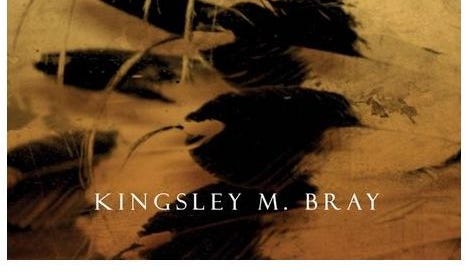As mentioned in an earlier post, I am reading another book on Crazy Horse, who is a deeply fascinating historical figure to me.
Let me tell you a story.
So last night I’m reading, and I’m almost done with Kingsley Bray’s Crazy Horse: A Lakota Life. The day had been up and down for me mood wise, which is something I can struggle with. On the amazing side, my younger warrior daughter, who plays JV tennis, won her first doubles match of the year, and they blanked the opposing team! Incredible! She was thrilled and I couldn’t have been prouder.
Later, I became uneasy, even grumpy or semi-mad for no reason. I found myself with only two short chapters remaining in the Crazy Horse book, but there’s no mystery to what happens next—Crazy Horse dies (murdered, really), and every circumstance surrounding this tragedy proves completely predictable and awful; it could be a morality play where the players sport names like “Jealousy” or “Bureaucracy.” Turning even grumpier, I finally say “screw it,” and decide to let Crazy Horse live one more textual day. I head upstairs at 10:30 PM, don’t do any of my usual things (like maybe watch a little television). Instead, I curl up and go to sleep, probably sometime by 11:00 PM.
Today, I feel better. I’m happier, getting work done, listening to some music. I also work out. As I begin my post-administrative role in higher education, I am questing to remember what I’m good at, who I was before I successfully ran a College for six years. I’m waiting for a sign, a lightbulb, or even a lightning bolt. I finally sit down and return to Crazy Horse, reading a version of what I’ve read before. Crazy Horse, after being bayonetted in the back twice, then once again from the front, suffers the wounds he will die from later that evening.
While reading, I stupidly hadn’t been paying attention to the dates, staying too focused on the names of the numerous players. Crazy Horse died at 11:40 pm, on September 5th, 1877. That’s right. Yesterday was the anniversary of Crazy Horse’s death and I didn’t realize it. 146 years. On September 6th, today, Crazy Horse’s family and some friends wrapped his body in blankets, erected a scaffold, and set his body atop the structure. Great mourning, but also a bitter peace that the long conflict which deeply divided the Lakota internally (Red Cloud and Little Big Man, for example, were happy with this outcome) was over. Crazy Horse’s father, Worm (who was formerly named Crazy Horse), was with him when his son died, and as a holy man in the tribe was able to guide all the rituals to follow, including the Ghost Owning Ceremony. The many people who loved and respected Crazy Horse were bereft and wailed through the day and night.
Life is always filled with small coincidences like this, and I like to believe our ancient brethren who trusted concepts like the music of the spheres, or planets lining up for a purpose, were on to something, that the current sounds of our science don’t necessarily drown out their own. In my mind, I was meant to not finish the book last night because, based on the dates and times, Crazy Horse had yet to die. He still had forty minutes or so left in the world, lying in red blankets on the floor of a small lodge.
The great irony of it all? Crazy Horse, of all people involved, was the only person who proved consistent, honest, and right. Some historians, including Kingsley Bray, refer to Crazy Horse as becoming deeply “paranoid.” My reminder to people who use that word remains consistent: you are not paranoid if you are right; you are simply right.
Crazy horse repeatedly asked for two simple things in exchange for peace: a reservation in the north and the opportunity to go on a Buffalo hunt with his people—if these two things happened, he said he would finally go to Washington to meet with the “Great Father.” Of course, in terms of the white leadership, bureaucracy resulted in delays, more delays, conflicting information, changing leadership, withholding of information, and lies. Among the Lakota, there were bitter internal rivalries and fears that Crazy Horse would be named the “lone chief” of the Lakota. Worst of all, on the day Crazy Horse died, he thought—and was promised—that he was traveling to Camp Robinson willingly to deliver his side of what had been mistranslated and dishonest stories. He was told he would not be arrested, which he feared, and that was indeed the intent all along. Crazy Horse was killed for refusing to enter a cell upon realizing that it was a prison; the room held men who were chained to the wall. He tried to fight his way out of a structure that he was promised he would not have to enter.
To return to the irony… The reservation ended up being located in the north, as Crazy Horse requested and would have been happy with, then transitioning into his life as a peaceful, spiritual leader. Will never know what such a life would have held for Crazy Horse.




